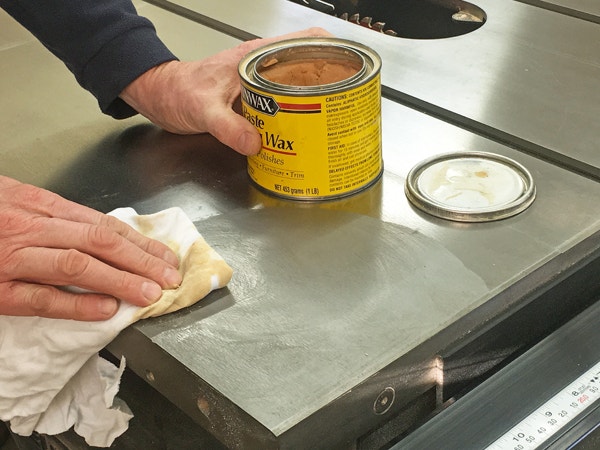How Do I Protect Cast Iron from Rusting During Storage?
In the near future, I'll be moving to a new house, but the timing is not going to allow me to set up my shop immediately. I will probably have to store most, if not all, of my equipment for several months in non-climate-controlled conditions. My question: How to prepare the cast-iron tables of saws and jointers, etc., to prevent against rust? - Ernie Mascarello
Rob Johnstone: While there may be better ways to take care of the cast iron, when I recently moved my machines to a storage facility, I first slathered on a super thick layer of paste wax and just left it there. It "hardened" after a fashion...and I am sure it is hard as a rock right now in the super cold temperatures of my unheated storage unit. (And let me be clear, the location of that unit will remain top-secret!) A couple of days before I put the paste wax on the tools, I wiped the tops and exposed metal surfaces with paraffin oil. I will be able to tell you how well the iron survived in a few weeks.
Tim Inman: Cosmoline, which is a thick and waxy grease often employed by machine manufacturers before crating and shipping, would be the totally bulletproof material to prevent rust. It is also awfully messy. Actually, I think you would get along just fine by applying a nice heavy coat of beeswax to the cast-iron surfaces. Don't polish it; just apply and forget it until it is time to set up in your new shop. If it is too thick and/or too hard, a cloth soaked in mineral spirits will always release it. You can make up your own beeswax paste by simply putting cakes of beeswax into a can of mineral spirits. It will dissolve wonderfully, and you have a great surfacer to use.
Chris Marshall: Warm and cold temperature swings aren't really a big deal for stored machinery, provided the relative humidity remains low. "Hot and dry" or "cold and dry" will keep rust at bay. But throw moisture into the equation, and that's where the problems begin. Aside from a wax-based metal coating that Rob and Tim are suggesting, you also could use a dry lubricating spray like GlideCote by Bostik. Just spray it on and let it dry to seal the metal. It’s probably the quickest and cleanest of these solutions, and in my experience of moving and storing machines, it has worked well. Good luck on your home and shop move!
Keep the inspiration coming!
Subscribe to our newsletter for more woodworking tips and tricks






